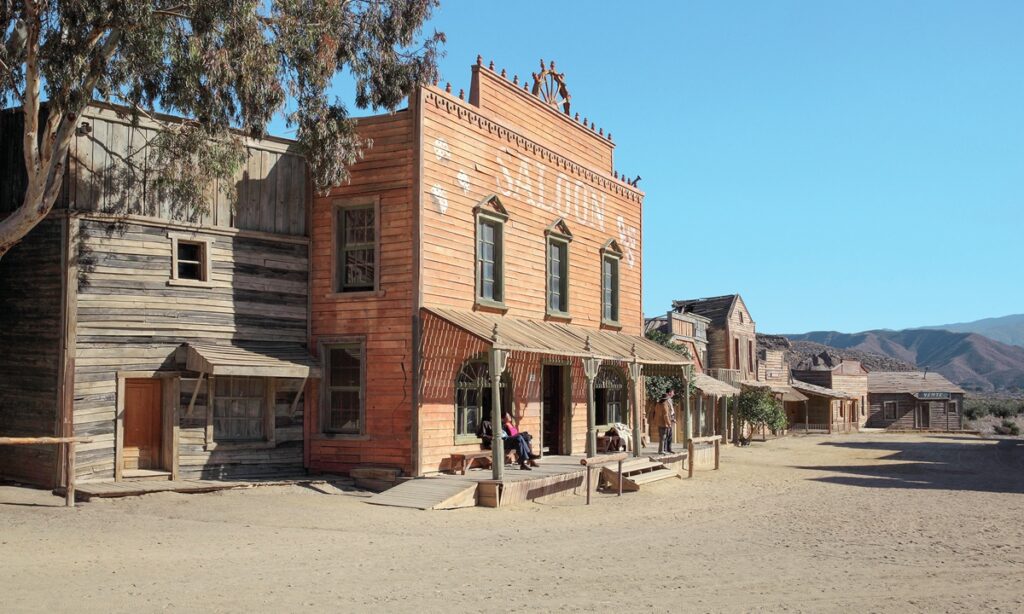“Sorry, we are closed,” reads the sign on the glass door of the Jailhouse Saloon, a bar in Texas.
The sign has hung forlornly in place for months during the coronavirus lockdown, despite the owner’s best efforts to get it re-opened in the face of lockdown orders issued by the local authorities.
“Just closing us, doesn’t mean our customers are staying home. All they’re doing is going someplace else,” said Dena Wagner, co-owner of the biker bar in Spring, a town close to Houston known for its ghosts and railroad.
A week ago, the establishment made a tentative shot at reopening, despite an order by Governor Greg Abbott at the end of June to close all bars in the state as virus infection rates soared.
Punishment was swift: A few days later, the bar’s license was suspended for 30 days.
But the case shows the growing defiance of many small businesses that are caught between health concerns and financial survival.
“A lot of us, this is our livelihood. This is our savings. This is things that people have built there and saved their whole entire lives for, to just see [it] being destroyed,” Wagner told AFP.
She estimates the business has lost around $150,000 since the pandemic hit, having been forced to shut down for two months between March and May, then again a month later on orders of the governor.
“I feel that it’s very unfair,” she said, noting that under the governor’s decree, restaurants are allowed to open at 50 percent capacity, while bars are shut, which she called “a double standard.”
‘Freedom fest’
As opposition to the governor’s the ruling grew, a movement dubbed “Freedom Fest” sprang up in several bars in Texas last week.
Its goal, set out on a Facebook page, was for bar owners to open up despite the governor’s order and “exercise their civil rights” to avoid going under.
To mark the occasion, around 20 people came to the Jailhouse Saloon to listen to a rock band, said Melissa Miller, a regular at the bar.
Profits from the event were donated to a charity, but the establishment was quickly punished by the local authorities, who suspended the bar’s license temporarily.
“It’s sad to know that, you know, something that she [Wagner] has put her heart into for so many years with the virus, you know having to be forced to shut down,” said Miller, a 46-year human resources worker.
A fan of live music, she said the bar was a place where people came together “for a good time.”
Another regular, Melanie Ward, 49, recalled Thursday night “biker nights” where the friendly staff became like a second family to her.
Hygienic responsibility
For the co-owner Dena Wagner, hygiene is as much the responsibility of the clients as the business owner.
That is why she applied last week to the Texas Alcoholic Beverages Commission for the right to modify her business license.
She hoped to thereby be allowed to re-open her indoor patio areas, and get back the musicians who once played there regularly.
But the classification of establishments targeted by the new regulations cannot be changed during the pandemic.
Texas has become a major hotspot of the coronavirus, with more than 430,000 confirmed cases and 6,800 deaths.
Abott has been urged on several occasions to change his stance by people opposed to his safety measures. In April, when the state was on lockdown, protesters gathered in several Texans cities to demand the jump starting of the economy.
A Texas hairdresser was sentenced to seven days in jail and a given hefty fine in May for continuing to operate in defiance of the lockdown measures, in a case that caught national media attention.
Abbott then overturned the prison sentence retroactively and salons were permitted to open in the weeks that followed.
Western street set with saloon bar and porch at the Texas Hollywood theme park in Spain Photo: AFP




